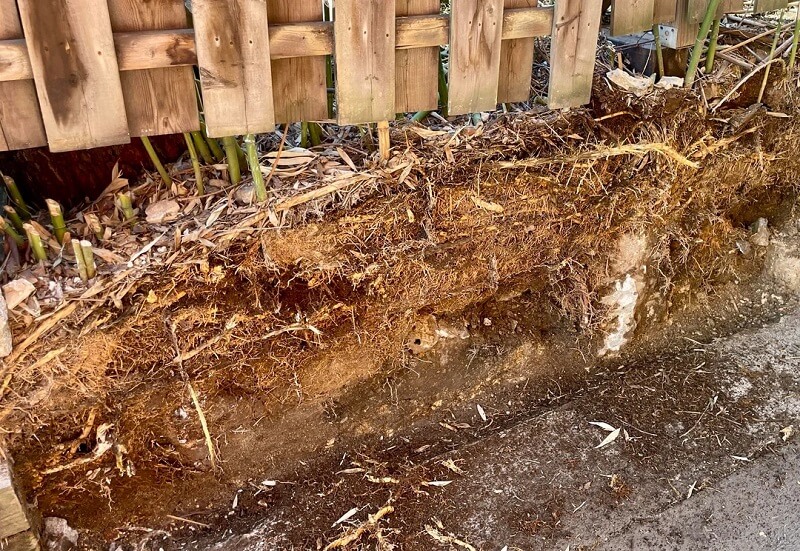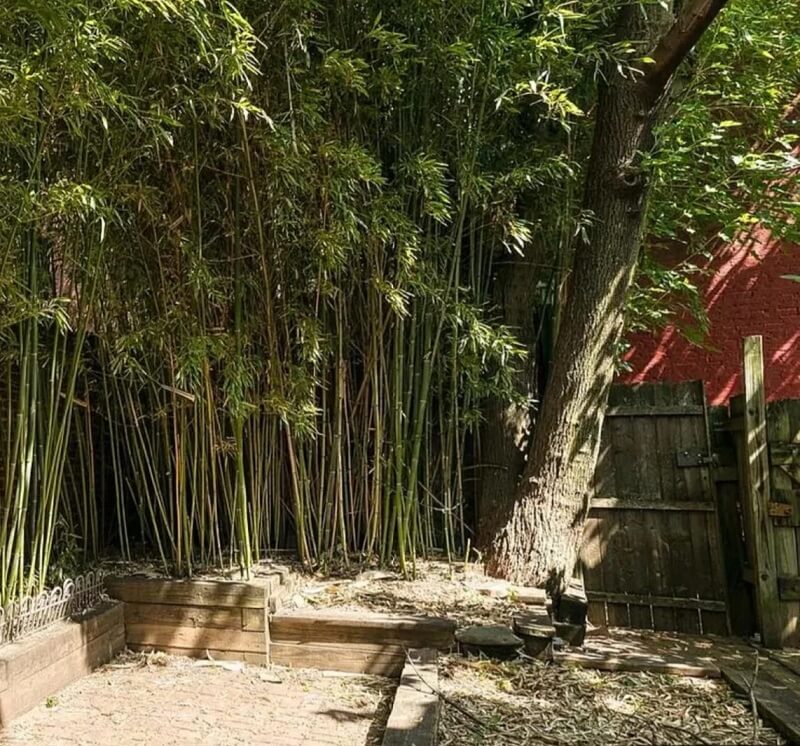Bamboo can be used in lawns and backyards to create beautiful, natural barriers. However, if bamboo grows in environments where it isn't native, the stalks can impact the soil, and it can take years of labor to fully remove the roots.
A Reddit user is experiencing such negative impacts in their backyard, providing a great example of the importance of planting native plant species in lawns and backyards to preserve and conserve healthy ecosystems.


In the r/gardening Reddit community, the user posted photos of deeply rooted bamboo stalks in their yard. The bamboo, which was planted by the previous homeowner, had significantly damaged the soil.
"Great for privacy, awful for trying to do anything else with the ground. Soil was hard as a rock (not kidding)," wrote the user in frustration, along with photos of the 20-year-old bamboo roots stuck in the ground.
When it comes to bamboo, all species are generally put into two categories: running bamboo or clumping bamboo, as per Bamboo Sourcery. Clumping bamboo grows short roots centered around the original plant, while running bamboo grows roots horizontally and will spread as far as they can, causing chaos for other plants.
Understanding the difference in bamboo types when planting and gardening is representative of the overall importance of taking the time to learn about all plants you are planting and making sure they are all native species.
Honing in on the power of native plant species and rewilding your lawn will not only help support your local ecosystems and pollinators, but it will also save you time, money, and reduce the amount of water needed for maintenance. Examples of how to start rewilding your lawn include creating a clover cover or planting native wildflower seeds.
In the time it takes to kill off an invasive plant species — which can take years, according to research from the University of Maryland — you could be on your way to an estimated 10-year saving of $2,750 and 1,750,000 gallons of water.
"My husband used a pickax to get the bamboo out that was planted here, and we still get shoots of it…" warned one user.
"We need to introduce pandas into the wild to eat it," joked another.
Join our free newsletter for easy tips to save more, waste less, and help yourself while helping the planet.









